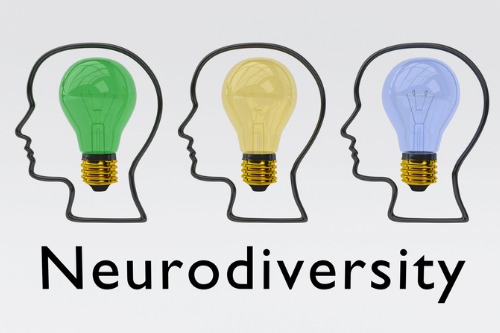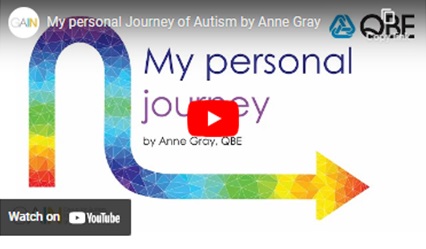Unlocking innovation with neurodiversity

Authored by by Nikki Lees, People Director, Inclusion & Wellbeing, QBE
Diversity and inclusion drive progress and innovation across the insurance industry
Diversity and inclusion have been professional buzzwords for the last decade, and it’s true that in recent years the financial services industry – and insurance in particular – has experienced a broadly positive shift. But while mid-term progressive trends demonstrate the insurance industry’s growing commitment to the need and benefits of fostering a diverse environment, the upward trend is not always consistent – and as the FCA observed, not all target areas are treated equally.
The insurance industry ranks better than banking and asset management (17% of insurers have less than 40% female representation within the boardroom, compared with 29% of banks, for example, but there is more we should – and want – to do, especially in other categories.
The FCA noted that most companies lean towards trying to improve the representation of women at senior leadership level – but inclusivity is important for everyone at every level and should acknowledge the full range of diversity characteristics.
Based on our knowledge that greater D&I will elevate innovation, decision-making, risk management and personal wellbeing, QBE’s approach looks at experiences and outcomes across the full range of diversity characteristics including sex, race/ethnicity, LGBTIQ+ identification, disability, and neurodiversity.
For us, it’s not just about being represented or counted, but about a sense of belonging. This works not only as a building block of inclusion but also because people who feel they belong are more likely to thrive at work, move into an innovative mindset, and stay with us at QBE.
This year we launched a refreshed set of inclusion targets, that focus on achieving and maintaining an equal sense of belonging across all these diversity characteristics, measured annually using QBE survey data. This focuses on gender, race/ethnicity, sexual orientation and disability (including neurodiversity), with a target to achieve less than 5% variance in our employee survey results when asking the question ‘Do you feel a sense of belonging at QBE?’
Partnership with GAIN
Did you know that 1 in 5 individuals in the UK identify as neurodivergent, but in the UK, only 29% of adults with autism are employed?
Yet the valuable role a neurodivergent candidate can play in elevating business strategies and innovating with new ideas should not be underestimated.
According to an article in the Harvard Business Review, while many neurodiverse people may face challenges, many also have higher-than-average abilities in specific areas. Research shows that some diagnoses can come with special skills in memory, pattern recognition or mathematics, for example. The range of skills from people diagnosed with autism, ADHD, and dyslexia can be varied, offering a rich talent pool for employers. It’s therefore unsurprising that the financial services sector attracts some of the most talented neurodivergent candidates and benefits from improved business outcomes as a result.
QBE has recently partnered with GAIN, an industry body whose mission is to generate industry-led improvements in the employment prospects and working experiences of neurodiverse people in insurance, investment, and other areas of financial services.
GAIN is driving change in the financial services industry’s approach to inclusion, and we’re delighted to have partnered with them as an Industry Transformer. QBE joins GAIN’s Design Thinking Workshops to collaborate with external organisations and identify key challenges in the workplace regarding neurodivergence, to create effective long-lasting solutions we can then bring back to our organisation. Working together means we can further build on QBE’s culture around neurodiversity to identify areas where we can implement more accessible and inclusive processes.
“Experience tells us that the insurance, investment, and related financial services industry can benefit greatly from the skills that neurodiverse individuals often excel in,” said a spokesperson from GAIN.
“Skills such as a methodical approach to tasks, a strong attention to detail [and] alternative creative thinking, as well as looking at situations from a different perspective.”
Building an inclusive culture
QBE is pleased to share GAIN’s mission to champion neurodiversity in the insurance industry and bring the same focus to representation as other diversity characteristics.
Neurodiversity is an important part of a fully inclusive organisation, and our partnership with GAIN is improving the support we have available for neurodiverse employees. Alongside practical alternatives offered to enable all employees to work and live to their full potential (from flexible and/or hybrid working, to the provision of quiet spaces and specialist equipment) we’ve also completed the GAIN benchmarking exercise, built out our Neurodivergence Action Plan, provided neurodiversity and inclusion resources in dedicated employee sessions, and continue to foster a culture of acceptance and respect for all employees.
As part of our Neurodivergence Action Plan we aim to actively encourage more conversations around neurodivergence, while equipping leaders and managers with the confidence to support neurodiverse employees. Additionally, we will place extra focus building resources on the reasonable adjustments and how to access them, and further address cultural perceptions in the workplace about neurodiversity and the working environment.
A GAIN interview with our Assistant Claims Manager, Ben McBean, reveals his own experience of exploring and receiving a diagnosis of ADHD and autism. He shares how having an understanding and supportive employer is the key to balancing life and work as a neurodivergent employee and parent to two neurodiverse children:
Our Principal Technologist, Anne Gray also spoke to GAIN about her own journey of being diagnosed with autism, and how her diagnosis has helped her to gain a better understanding of herself. She also highlighted the importance of mentoring and how having a buddy at work can help with navigating social and work situations:

The power of diversity is vital for any firm expecting to remain innovative and competitive in the evolving financial services landscape. Put simply: the more diverse your organisation, the better your team will be at problem solving, communicating, creating, and understanding your equally diverse client base.
Diversity of people brings diversity of thought, diversity of understanding and diversity of perspective, and ultimately allows greater reach to new markets, with solutions to more varied challenges.





